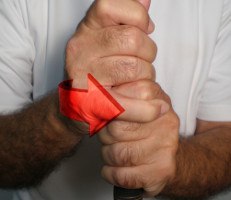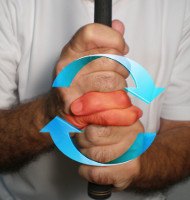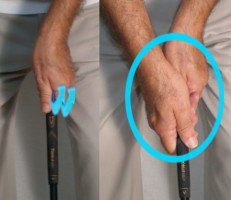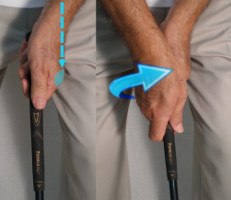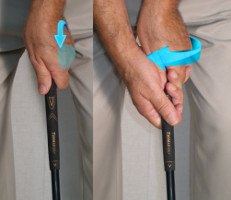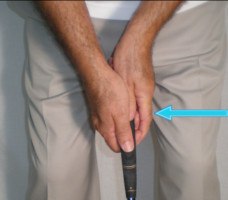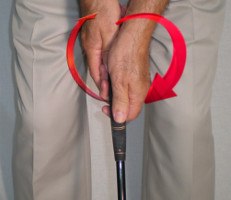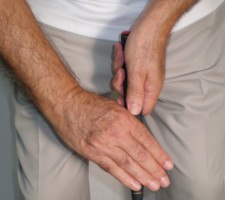|
Pros and Cons of Every Golf Grip Style |
Best Grip? Overlapping vs Interlocking |
Grip style: Vardon (overlapping)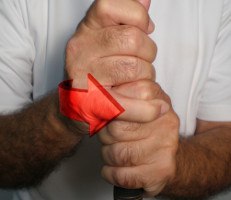 |
Hand position: Neutral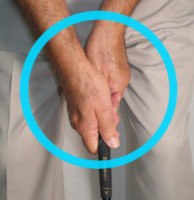 |
Putting grip style / hand position: Reverse overlap / neutral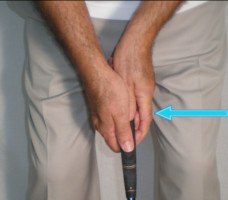 |
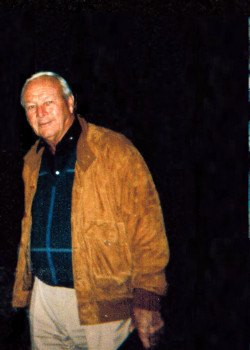
The King’s swing has been fodder for good-natured impersonations for decades. But if you want a model for how to correctly hold the golf club, look no further than the famous Arnold Palmer grip.
Arnie, whose father was a teaching pro, was (and remains) a firm believer in sound setup fundamentals. His grip shows perfectly matching left- and right-hand positions – the “V” formed by the thumb and forefinger of each hand points just right of his sternum, with the back of his left hand perpendicular to the target line.
If Palmer’s grip was so good, you may be asking, how did his swing end up looking so awkward? Simple. He under-rotated the hands and arms on the backswing, causing the clubface to close. To avoid hitting a huge hook, he compensated by holding off on releasing the club at impact, causing the so-called “helicopter” finish.
Now let’s look at the Arnold Palmer grip with the putter. He was conventional here, too – neutral with the hands, his left forefinger placed over his right fingers in reverse-overlap fashion. His grip pressure was very light, something amateurs would do well to copy.
A light putting grip – about 3 – 4 on a pressure scale of 1 – 10 – prevents stroke-wrecking tension in the hands and forearms. On the other hand, Palmer’s wristy “pop” stroke is a relic from yesteryear. In Palmer’s playing days, greens were much slower and bumpier than today’s sleek surfaces, necessitating a much firmer hit to get the ball rolling on line.
The Arnold Palmer grip is a type of grip used in golf, named after the legendary golfer Arnold Palmer. It is also commonly known as the “interlocking grip.”
To use the Arnold Palmer grip, follow these steps:
- Hold the club with your lead hand (left hand for right-handed golfers, right hand for left-handed golfers) and place it at the top of the club's grip, close to the clubhead.
- Position your lead hand's little finger (pinky) between the index and middle fingers of your trail hand (right hand for right-handed golfers, left hand for left-handed golfers). The little finger should rest comfortably against the trail hand.
- Wrap your trail hand's fingers around the grip, making sure the thumb of your trail hand fits snugly into the lifeline of your lead hand.
- Keep both thumbs pointing straight down the shaft of the club.
- Align your hands so that the “V” formed by your thumb and index finger on each hand points towards your trail shoulder (right shoulder for right-handed golfers, left shoulder for left-handed golfers).
- Maintain a relaxed grip pressure, neither too tight nor too loose.
The Arnold Palmer grip is a popular choice among golfers and can help promote a unified swing and better control over the club. However, keep in mind that grip preference may vary among individuals, and it's essential to find a grip that feels comfortable and suits your swing style.
(adsbygoogle = window.adsbygoogle || []).push({});
